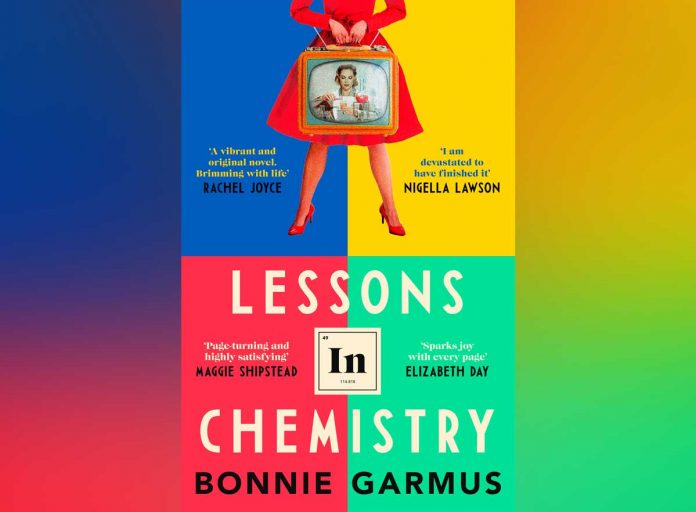Lessons in Chemistry
Bonnie Garmus
Penguin, $32.99
Aspiring authors, take note and take heart. At age 64, Bonnie Garmus has published her first novel (after her previous two failed to find a publisher). Her quirky, hard to categorise Lessons in Chemistry is a New York Times bestseller.
Ostensibly, Lessons in Chemistry is about a female scientist in the 1950s and ’60s who, stymied by sexism and personal tragedy, abandons hope of a scientific career and lands a job hosting a cooking show on afternoon TV. Her cooking show (Supper at Six), treats cooking seriously – reminding her audience that cooking is chemistry.
Yet the book is about far more than the unlikely scientist-turned successful TV chef. Through its heroine, Elizabeth Zott, Garmus makes clear her views on bullying, sexism, religion, friendship and acceptance.
Not only does Elizabeth refuse to talk down to her overwhelmingly female audience, she dishes out healthy servings of advice: Don’t bow to societal pressure to lose weight through diet pills. Take up rowing. Use fresh ingredients. Poison mushrooms just might solve your mother-in-law problems (just joking!) Remember that homemaking and cooking are important, but massively under appreciated.
The book’s promotion, and many reviews, highlight its humour, and there is plenty of that. Here is her description of Elizabeth’s daughter, Madeline, a precocious reader who struggles to fit in at school: “… while musical prodigies are always celebrated, early readers aren’t. And that’s because early readers are only good at something others will eventually be good at, too. So being first isn’t special – it’s just annoying.”
Yet there is trauma and tragedy in the book as well. Elizabeth and Calvin, the fellow scientist with whom she falls in love, both had terrible childhoods. His was spent in an orphanage after the death of his parents and then aunt.
Elizabeth’s father was an evangelist who could arrange spontaneous combustion when sceptics wanted a sign from God. (The secret was pistachios, Elizabeth explained to Calvin: “[Their] fat-cleaving enzymes produce free fatty acids that are broken down when the seed takes in oxygen and sheds carbon dioxide. Result? Fire.”) In some of the book’s darker bits of humour, we learn that one such combustion, unfortunately, killed three members of the audience, and Elizabeth’s father is serving a long prison term.
Lessons in Chemistry is frequently entertaining, and its critique of 1950s sex discrimination is hard to dispute. I did wish, however, that Garmus wasn’t quite so heavy handed with her views. With few exceptions, the male characters are either potential rapists or academic frauds (or both). Religion (primarily, but not only, Catholicism) is blamed for Calvin’s miserable childhood, Elizabeth’s brother’s suicide and the reluctance of the long-suffering Harriet Sloane to leave her horrible husband. At times, Garmus wields a sledgehammer when a light brush would have done.
Despite this, and a few plot twists that stretch credibility to breaking point, Lessons in Chemistry manages to be both touching and funny.





